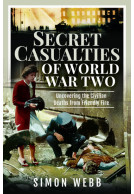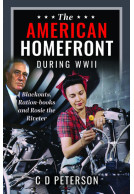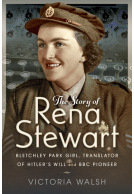The Last Days of Empire and the Worlds of Business and Diplomacy (Hardback)
An Inside Account
Imprint: Pen & Sword History
Pages: 144
Illustrations: 16 black and white illustrations
ISBN: 9781526789044
Published: 8th April 2021
(click here for international delivery rates)
Order within the next 3 hours, 35 minutes to get your order processed the next working day!
Need a currency converter? Check XE.com for live rates
| Other formats available - Buy the Hardback and get the eBook for £1.99! | Price |
|---|---|
| The Last Days of Empire and the… ePub (13.9 MB) Add to Basket | £6.99 |
Charles Cullimore's was a varied life from the end of the British Empire to high-level business and finally with major roles in post-imperial British policy. He rounded off a career appropriately by lecturing at the School of Oriental and African Studies in the University of London, underpinning academic study with his hands-on experience in international diplomacy. The account is modest, graphic, full of incident, personality and anecdote, and face-to-face encounters with leading actors. After the 'Devonshire course' for entrants to the Colonial Service came appointment to Tanganyika and here is an intimate personal and 'official' account of district administration and the rise of TANU - Tanganyika African National Union - and decolonisation. The moving letter from Julius Nyerere reproduced in the text sums up a close relationship at the end of empire between the administration and the rising politicians assuming power at decolonisation when Tanganyika became Tanzania shortly after. A spell at ICI in 'personnel' followed in Scotland, Malaysia and Singapore. And then back to government service in the Foreign and Commonwealth Office focussed on Overseas Development, followed by a posting to Bonn at the height of the Cold War. The author came back to British Commonwealth service as Head of Chancery in India, Deputy High Commissioner in Australia, Head of the Central African Department in the FCO covering relations with the 'front-line States' and their conflict with South Africa. Finally, he was High Commissioner in Uganda at the time of state-recovery under Museveni - an intimate account full of fascinating personal contact. A personal story, a colourful travelogue and an inside experience of politics and international relations, which includes a poignant 'imperial' sidelight with the discovery of his grandmother's grave in India.
"I found the book absolutely engrossing."
Middle East Policy Review
This was a more interesting book than maybe it looks in that it was quite helpful and insightful looking into a world of diplomacy, especially between countries with different ways and habits. Life in the British Colonial Service and the British Commonwealth seems quite varied and different every day, and often it seems they could be walking a tightrope daily. This is all the more unique as it’s the run-up towards the end of British rule in some countries. I enjoyed this book more than I thought, and I actually enjoyed the more diplomatic side of events. While this book might not be for everyone, it’s actually a really good and informative read.
UK Historian
Read the full review here
Charles Cullimore has written a memoir about a career that simply could not occur again in terms of its breadth, diversity and also very real difficulties and hardship. It is hard to imagine many aspiring civil servants being prepared to live and raise a family in basic mud-brick housing with no running water, no heating or AC and with scorpions scurrying around. And yet this is exactly the kind of house that greeted Charles and his young family in East Africa in the 1950s. Indeed, memoirs like this one are so important for reminding us of a world that has now passed firmly into the pages of the history books. Sadly, Charles died in February 2021 but we can at least be thankful that he committed some of his remarkable experiences and expertise to paper.
The British Empire
Read the full review here
About Charles Cullimore
Charles Cullimore was born in Northern Ireland where his father was a much-loved Church of Ireland rector in Omagh. He tried to bridge the Catholic-Protestant divide, fostering communal relationships and overcoming historic hostility. Charles' mother was equally involved. After Portora Royal School, Enniskillen and Trinity College, Oxford, he held a short service commission in the Royal Inniskilling Fusiliers, and then attended the 'Devonshire' course at Oxford for entrants to Her Majesty's Overseas Civil Service, the British Colonial Service. He served as a district officer in Tanganyika until Tanzania's independence. A spell in in the Personnel Department at ICI followed before resumption of his main career in government service at the Foreign and Commonwealth Office.














